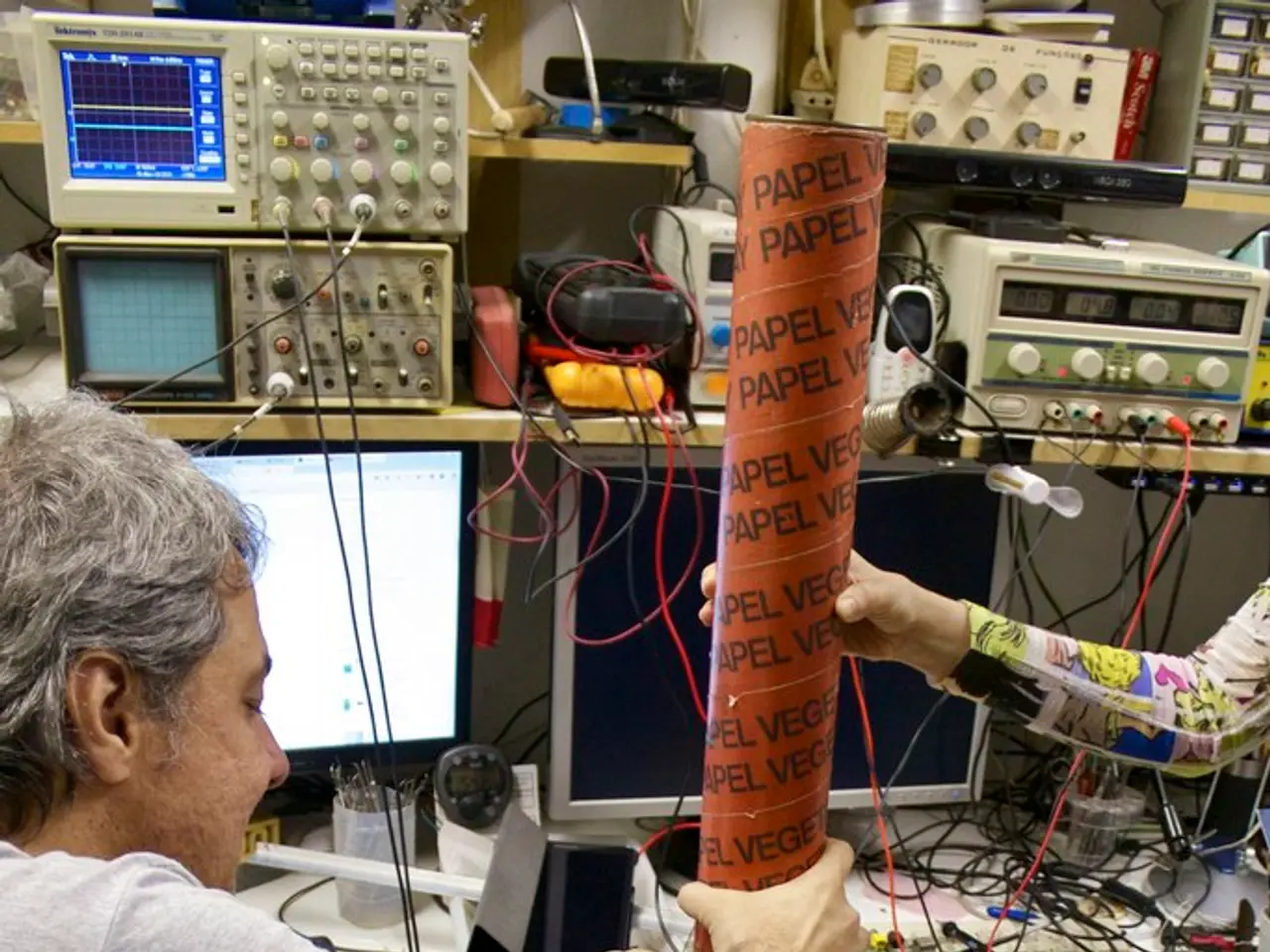Alison Wright Discusses Burnout, Setting Boundaries, and Authentic Engagement with Youth
In a world where remote work has become the norm, Alison Wright, the CEO of The Reach Foundation, a renowned youth mental health organisation, advocates for the benefits of in-person work for young teams.
Wright, who has experienced burnout twice in her career, emphasises the importance of collaboration, engagement, and trust-building that in-person work offers. She believes these elements foster stronger interpersonal bonds, which are critical for effective teamwork, creativity, and innovation.
In-person work allows for casual conversations and spontaneous brainstorming that are difficult to replicate remotely, leading to better problem-solving and innovation. Physical presence helps build trust more naturally and strengthens a cohesive workplace culture among young employees, which is vital for team functioning and emotional investment in work.
Young and new team members also benefit from in-person mentoring and easier access to senior colleagues, supporting skill development and leadership within fast-growing teams.
Since organizations have been returning to office settings, some key observed changes include increased focus on intentional management, hybrid challenges and opportunities, and workspace reimagination. Companies are adapting hybrid policies to foster meaningful team in-person interactions, redesigning offices to include diverse spaces for collaboration, focus, education, and social interactions.
The Reach Foundation, founded by the late Jim Stynes, runs workshops across schools and workplaces to help young people build resilience, self-awareness, and connection. Wright's approach to engaging young people exposed to harmful online influences emphasises the importance of self-awareness.
Wright's strategy for engaging young people with empathy and connection involves providing them with a toolkit of skills and abilities. Her toolkit for young people is a set of skills and abilities to reflect knowing they can act positively and powerfully.
Wright believes that placing enormous pressures on young people to have their lives sorted early is harmful to their mental wellbeing. She suggests that it's important to communicate that life is messy and that it's okay to not have a strong sense of self in one's teens.
In her leadership role, Wright models boundaries by not working past 6pm, leaving her laptop at work, and not working on holidays. She does not glorify constant availability and sets clear boundaries in her communication with her team.
The Reach Foundation is concerned about the trend of more talk about mental health but less action to solve mental health pressures among youth. They suggest that more attention should be paid to prevention rather than just crisis services.
Wright is a strong believer in the power of in-person work, especially for younger employees. She thinks that the narrative of home ownership as a universal goal is contributing to these pressures.
In conclusion, young teams benefit from returning to the office by gaining more organic social and collaborative interactions that build trust and innovation. However, these benefits require intentional workplace design and management to be fully realised. Hybrid work remains preferred but works best when coordinated to maximise in-person contact among team members.
- Alison Wright, CEO of The Reach Foundation, advocates that in-person work contributes to stronger interpersonal bonds, essential for effective teamwork, creativity, and innovation among young teams.
- In-person work promotes casual conversations, spontaneous brainstorming, and easier access to senior colleagues, supporting skill development, leadership, and trust-building among young employees.
- Wright's toolkit for young people includes a set of self-awareness skills, designed to empower them to act positively and powerfully, emphasizing the importance of mental health and personal growth.
- The Reach Foundation encourages more attention to mental health prevention rather than just crisis services, highlighting the necessity of intentional workplace design and management for young teams to fully realize the benefits of in-person work.




